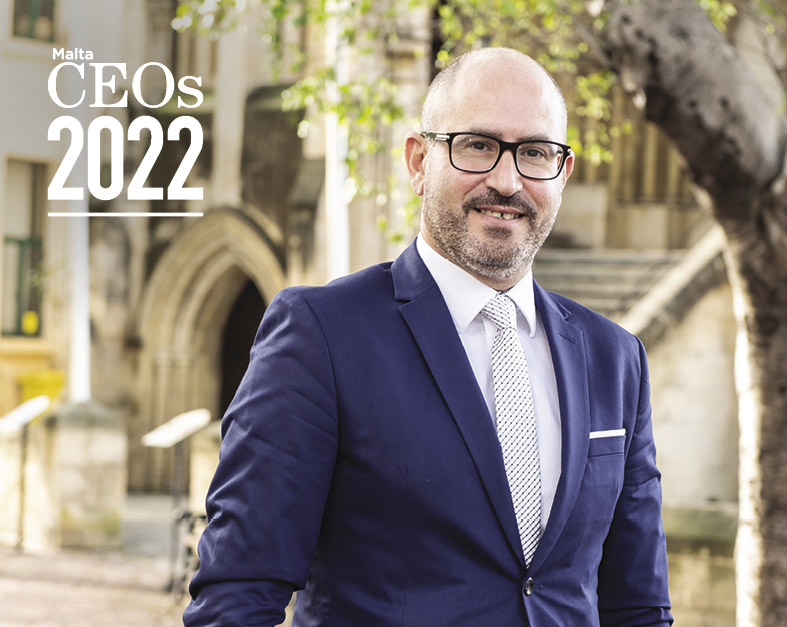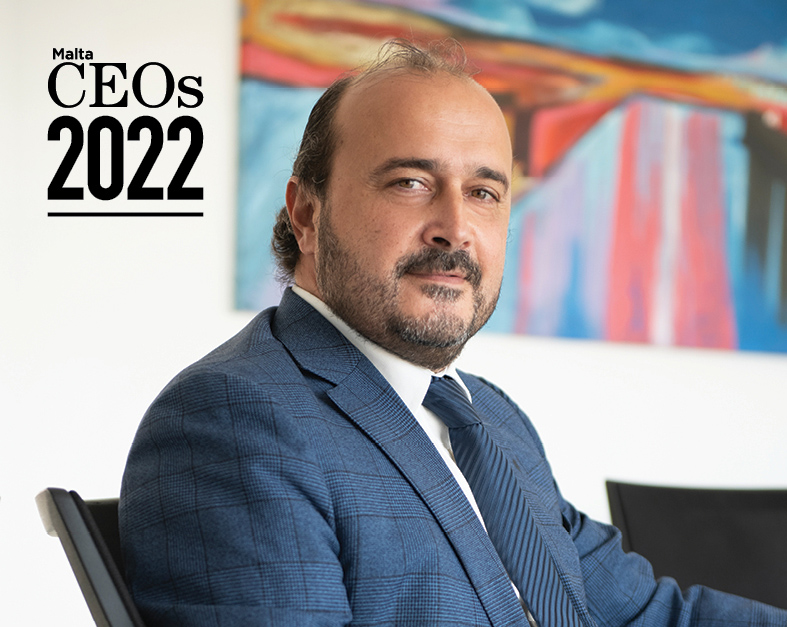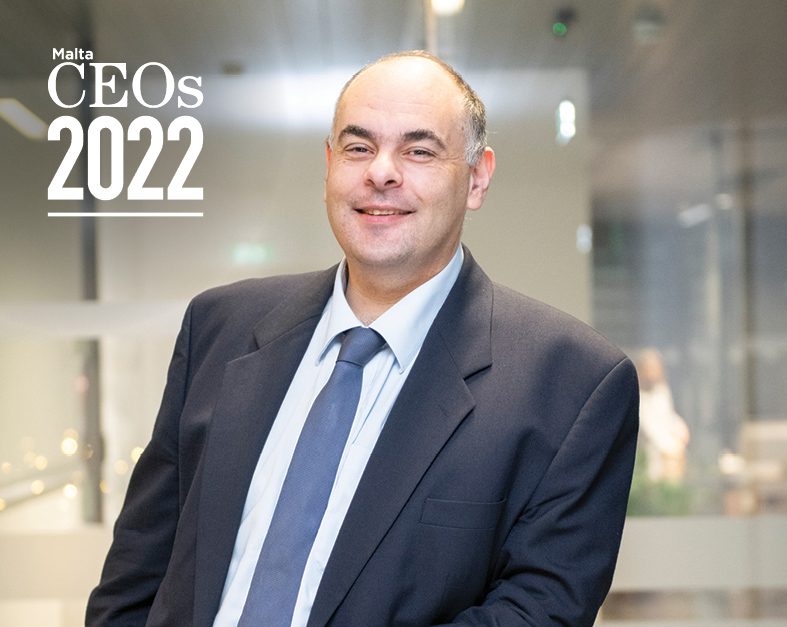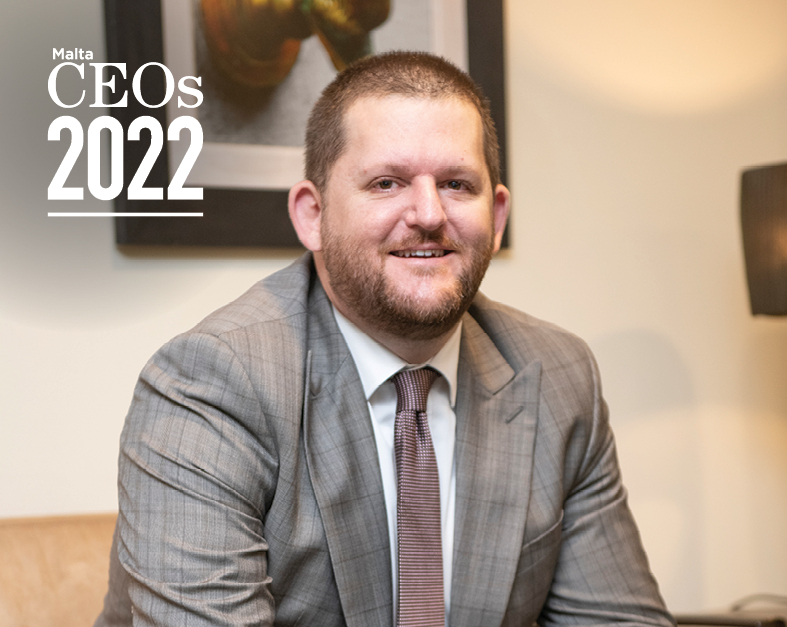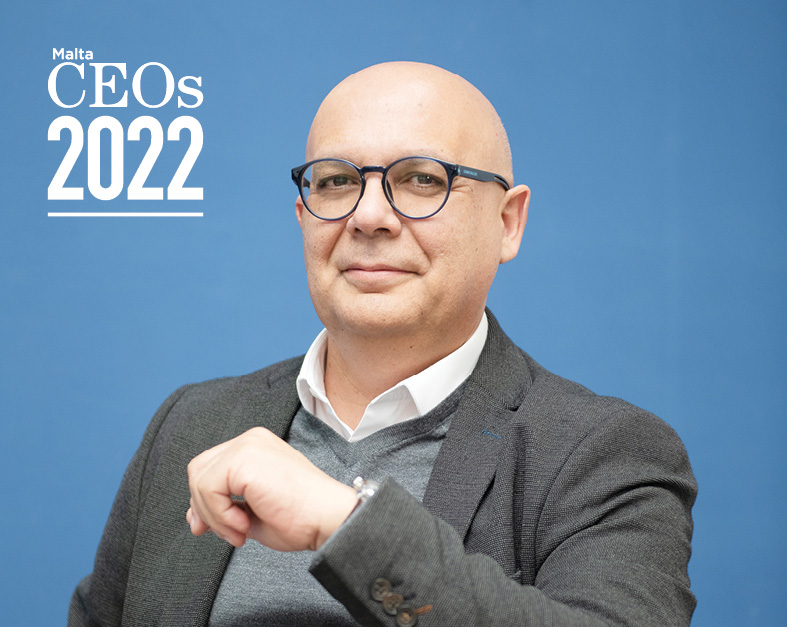The first authority of its kind in the world, the Malta Digital Innovation Authority (MDIA) was established in 2018 to regulate innovative technologies. Kenneth Brincat, who has over 18 years’ experience in management, was appointed CEO of the authority in October 2021.
When Kenneth Brincat joined the MDIA as its CEO, he had already accumulated years of experience in management, but never as the first-in-command. Still, leadership seems to come naturally to him. “I have always been a decision-taker, even when it wasn’t necessarily in my job description,” he admits, adding that he does not believe that leaders are born, but rather made. “I believe that a leader is developed over time. In my case, I always followed others as a child. It’s my work experience that taught me the leadership skills I use today.”

Leadership is a topic that fascinates Kenneth, and he identifies three different styles that he employs in his role as CEO. Being a team player, participatory leadership is his favourite style.
“Although different situations and personalities require different approaches, it is important to me that everyone is consulted when decisions are being taken, which is not easy to do as CEO,” he explains. “I made sure to meet each member of the MDIA individually as soon as I joined the Authority. I wanted to know their vision for their, and for MDIA’s, future.”
Kenneth also believes in sharing one’s power and knowledge with others, and in adapting one’s behaviour according to the situation at hand. “Sometimes you need to be paternal in your approach, others less traditional,” he says.
Prior to joining the MDIA, Kenneth held the post of COO with the Malta Business Registry (MBR) for three years. “I’m most proud of the setting up of the entity. We created all the departments in new premises, and were operating as a standalone agency within nine months,” he shares. As CEO, it is now Kenneth’s job to take the major decisions for the MDIA while managing its overall operations, as well as being the point of communication between the Authority and the Government.
Kenneth’s day starts with a quick look at his calendar to check what the day has in store. “I then prepare my 12-year-old son’s lunch, but I don’t have breakfast…or lunch, for that matter,” he smiles. “I practise intermittent fasting on weekdays, and only drink coffee and water until dinnertime. Then it’s a long dinner, usually consisting of at least three courses.” Kenneth explains that he doesn’t fast for health reasons, but rather because food is the last thing on his mind while working. “However, if someone brings a treat to the office, or if I have a work lunch, I don’t hold back,” he says, adding that he joins his family for all meals over the weekend.
Time with his family is currently not as plentiful as he would like. “I am reading for a doctorate, which is taking up a lot of my free time,” he says. “However, I try to find a balance between work and family time. I try not to read emails at home, and have deleted Facebook because I would often end up reading comments about work-related issues. I’d rather spend time watching football or a TV series with my family.”

Like all those in his position, Kenneth loves a challenge. “In this case, the challenges are twofold: my new role, and joining the MDIA at this particular time in its history,” he shares. “I’m very excited about the Authority’s future and to have joined at a time when both the MDIA and the sector it regulates are growing. There is the additional challenge of the unpredictability of the sector, but I am sure that technology will play an increasingly important part in the global economy, and the MDIA will become one of the most important authorities in Malta.”
As the first country in the world to have a legal framework and an authority that regulates innovative technologies, Malta is ahead of other countries. “We created this Authority so it could certify innovative technologies as safe and fit for purpose,” explains Kenneth, adding that the MDIA’s plan is to add AI to its existing list. As a regulator, the Authority’s role is to protect public interest by ensuring the technologies they use are safe. As things stand, obtaining this certification from the MDIA is optional, but this is set to change soon. “The EU is working on legislation to have such solutions, including AI, regulated, and Malta has already done the groundwork. That is something we should be proud of as a country,” says Kenneth. “A big part of our work right now is advising groups relating to innovative solutions within the EU.”
While a lot has already been done, Kenneth is a firm believer in extending these efforts to include the community at large. “Let’s be honest, while blockchain is the future, not many use it at present. We have to offer more assurance to the community, especially when it comes to cybersecurity. Nowadays, it’s easy to build a website, but neither the users nor the owners are necessarily protected. That’s why MDIA’s next step will be the launch of the Technology Assurance Assessment Framework (TAAF), which will offer a certification for any kind of platform used by the public,” he reveals.
Kenneth’s concerns are compounded by the increase in eCommerce brought about by the COVID-19 pandemic. Although most now feel safe shopping online, the risk of getting hacked is a real one. “If a website is hacked, it loses the trust of its customers, which could spell ruin for the business,” warns Kenneth. “In a way, the creation of the MDIA couldn’t have come at a better time, and I believe that those who will use the TAAF will have a competitive advantage over others. Certification gives both business owners and their customers peace of mind.”
With the digital innovation industry being so new, the MDIA has also taken on the role of promoter. “Although we have world-class experts in AI, the number of workers in this sector is limited,” Kenneth adds. “So, we have reached an agreement, called Pathfinder, with educational institutions through which we sponsor those furthering their education in this field, because these skills are certainly lacking in Malta.”

Another interesting project is the Digital Innovation Hub, a prospective EU-funded project for which the MDIA has been chosen to be the administrator. This hub, which will be one of many throughout Europe, will offer both physical space for innovators and researchers, as well as equipment and expertise to support them in their work. “We have also launched the Technology Assurance Sandbox, a virtual laboratory where those who might want to develop an innovative solution based on blockchain can test their ideas. The applicants are assessed through milestones that then lead to certification,” Kenneth explains.
Kenneth’s ongoing vision is now for the MDIA to communicate closely with the industry and keep tabs on its needs. “I also want to show other authorities that the way forward is for all public authorities to have a close relationship, and to overcome what I call institutional pride. Working together is the only way forward,” he concludes.
This article is part of the serialisation of 50 interviews featured in MaltaCEOs 2022 – an annual high-end publication bringing together some of the country’s most influential business leaders.
‘Networking is everything in our line of work’ – WES Trade CEO Alessio Bucaioni
MaltaCEOs 2022 serialisation: For seven years, WES Trade has helped an expansive range of clients internationalise their products and services.
‘Something can appear out of the blue and change everything’ – CEO Joseph Attard
MaltaCEOs 2022 serialisation: Unsurprisingly, given his technical background, Joseph’s approach is very hands-on.
‘Our key people help us provide the quality of service we expect’ – RiskCap CEO
MaltaCEOs 2022 serialisation: CEO Paul Magro counts building successful teams and opening an office in London among his achievement.
‘We’re the fourth busiest port in the Mediterranean’ – Malta Freeport Corporation CEO
MaltaCEOs 2022 serialisation: CEO David Magro is keenly aware of the responsibility his position carries.


